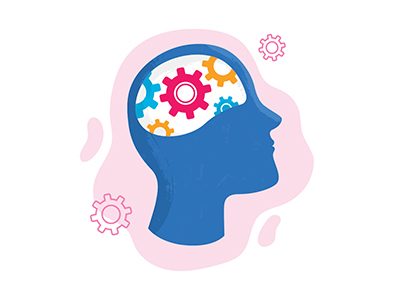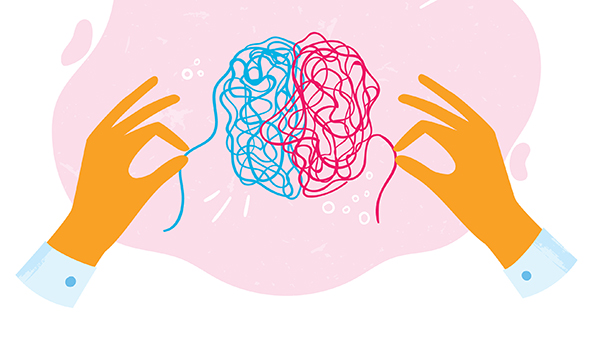The statistics are sobering. According to the National Alliance on Mental Health, 50 percent of college students rated their mental health below average or poor, and 75 percent of students who suffer from depression do not seek help for their mental health problems. In addition, 80 percent of college students report they feel stress, and yet only 25 percent seek help. With these numbers on the rise nationwide, and knowing the importance of mental health and its contribution to a successful academic and social life, colleges are striving to put effective counseling and guidance practices in place.
Liberty University acknowledges that college can be a big transition for students, especially when they are dealing with so many life changes away from home, and wants to make sure there are resources in place to provide a holistic approach to mental health. The university has stepped up by creating a broad network of mental health services and awareness programs across campus. Students have various touchpoints and avenues to seek out and receive help. The university understands the need for community in a student’s life and has created a wellness and safety net for mental and spiritual health in the places where students live, study, and interact with their peers.
 On the front line of this network are the resident assistants and resident directors working under the Office of Residence Life, as well as the community group leaders, resident shepherds, and LU shepherds under the Office of Spiritual Development. These peer mentoring groups help create a sense of community both inside and outside the residence halls and are a preventive measure for students who may experience loneliness.
On the front line of this network are the resident assistants and resident directors working under the Office of Residence Life, as well as the community group leaders, resident shepherds, and LU shepherds under the Office of Spiritual Development. These peer mentoring groups help create a sense of community both inside and outside the residence halls and are a preventive measure for students who may experience loneliness.
Tim Griffin, a director in the LU Shepherd office, said feelings of isolation often become a roadblock in seeking help.
“When you begin to understand that people are people and, by and large, our problems are mostly the same and ‘I am not the only one going through this,’ then people feel better about reaching out,” he said.
Because residential students spend a lot of time in on-campus housing, the Office of Residence Life works diligently to train their staff. This training encourages them to be observant and to connect and create relationships with students. These relationships become the first line of defense in spotting students who may be struggling and need more help.
“We are here because we love the students and want to help,” said Dustin DuBose, executive director of Residence Life. “We utilize a team approach in responding to ‘How are we best caring for the student?’ We want to help a student no matter how that looks in terms of which offices or people need to be involved.”
For more clinical assistance, students can visit the Student Counseling Office located in Marie F. Green Hall. The office provides various resources for students who are seeking help for mental health issues or are concerned with their mental wellness.
Student Counseling Services offers one-on-one and group counseling, wellness workshops, assessment and screening, and substance abuse education. Mental health services are also available for commuter students, and there are specific counseling services for veterans, international students, and student-athletes. The office also makes referrals to area health professionals.
 The primary pillars of the office are: Promotion, Prevention, Intervention or Treatment, and Education.
The primary pillars of the office are: Promotion, Prevention, Intervention or Treatment, and Education.
“There are two main things that guide Student Counseling services: reduce the stigma associated with mental health and eliminate or reduce as much as possible the barriers to students getting the mental health and support they need,” said Mike Kunzinger, executive director of Student Counseling.
Kunzinger said the office is not an inpatient treatment center, but a resource in guiding students to getting the help they may need long term. All students are triaged to determine their needs and then are assigned to the next step. For some, he said, that may be crisis intervention. For others, it is a scheduled counseling appointment or help with setting up pastoral counseling or other assistance as needed.
“Counseling can be a part of holistic care,” Kunzinger said. “We often conceptualize it as ‘I don’t need help until something is really wrong’ and ‘Only people who have real problems go to counseling.’ This is what adds to the stigma. Students should see getting help as a natural part of overall wellness.”
Liberty has recognized the need for all university departments to work in tandem to provide different avenues for students needing mental health help and has created a CARE Team (Collaborate, Assess, Resource, Empower) to consolidate their efforts. The CARE Team has two primary functions: threat assessment for campus safety and case management services. CARE case managers work to provide early intervention and advocate for students by helping to remove any potential barriers to their success.
The CARE Team advances the well-being and safety of the campus community by educating members about concerning or risky behaviors and offering them a place to refer students who may be struggling.
“The CARE team’s whole mission is to get in early, get in when we are seeing things going on with students so that it doesn’t escalate to something where it becomes a crisis,” explained Dr. Mark Hyde, associate dean of students who serves as CARE Team chair in his role as the executive director for the Office of Community Life.
“Everybody is on the same page — we want to love our students well, and that means getting in early.”
Dr. Mark Hine, senior vice president for Student Affairs, said the collaboration is effective.
“I feel like we have a real team approach between the shepherds, resident shepherds, RAs, RDs, the counseling office, and what community life does through CARE. The goal is to identify or assist students who are either in crisis or just want to stay on the right track. That is where the groups come in, and the seminars and services help to educate and build.”




